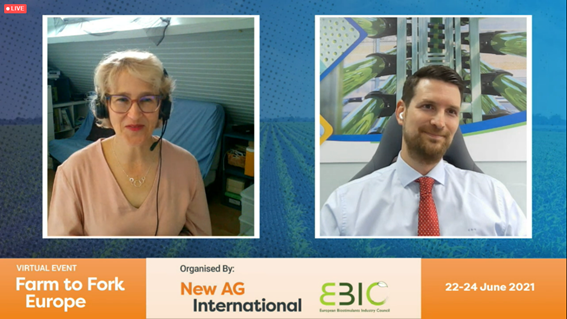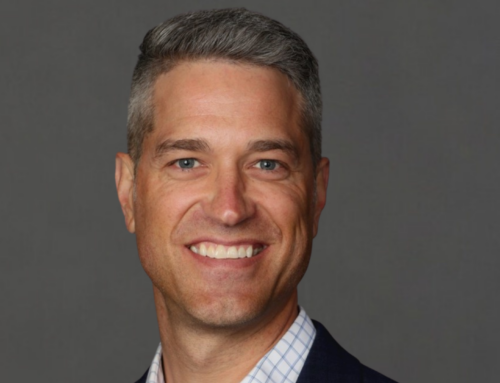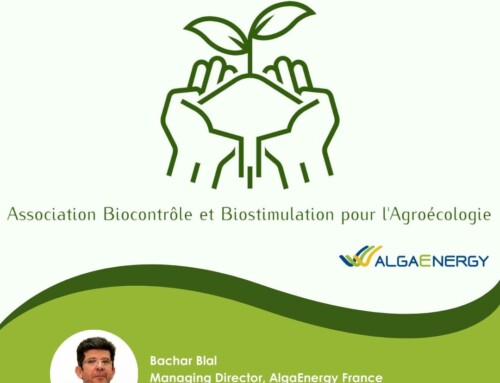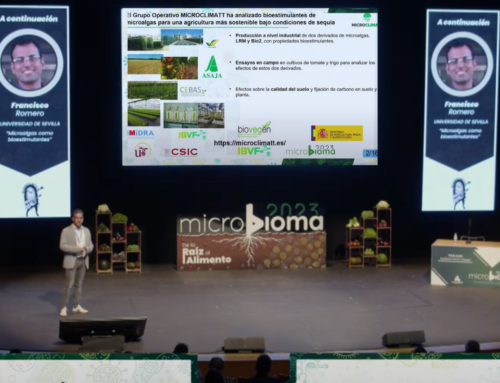We’re excited about our recent participation as a gold sponsor in the Farm to Fork event organized by New AG international and the European Biostimulants Council (EBIC) from June 22-24. This virtual event focused on Emerging Opportunities and Trends in European Agri-Food & The Role of Biostimulants in the Next-Gen Food Chain. One of the primary objectives of the summit was to provide new business insights to participants that was inspired by perspectives from business leaders on agribusiness economic, environmental, social, and regulatory issues. Participants in the summit had the opportunity to participate in roundtable discussions on investment, innovation, food retail, climate-smart tech, and others. Along with 16 AlgaEnergy delegates in attendance, our Managing Director, Carlos Rodríguez-Villa Förster, was invited as a guest speaker with his presentation on “Positioning your company to meet the challenge of investor engagement: A success story in raising capital”.

It was an interesting opportunity to not only share our company story, but also our unique journey from start-up to global leader and our learnings along the way.
To better understand how AlgaEnergy (AE) became successful, it’s important to really know who we are as a company.
Who We Are
AlgaEnergy is a leading global biotechnology company focused on developing innovative, sustainable solutions for agriculture, aquaculture, animal and human nutrition, and cosmetics industries. Our core technologies are based on the sustainable and renewable properties found in single-cell microalgae.
Since our beginning in 2007, our mission has focused on alleviating the three main challenges faced in today’s society: food security, environmental sustainability, and energy efficiency. By harnessing microalgae technology with other disruptive, innovative, and natural technologies, AlgaEnergy is building a strong international presence to deliver its natural-based solutions and creating sustainable alternatives to cover the whole crop input chain across the globe.
With these strong roots in research, innovation and sustainability, we’re also a proud B Corp. With only a 4% success rate for companies applying for the certification, this process took us over a year to achieve. We are the first microalgae company worldwide, the first Spanish biotech company to be certified, and among the first 100 companies in Spain to be awarded this prestigious certification.
Our Journey
Before becoming successful, innovative biotech companies must inevitably pass through the “Valley of Death”, which is where most fail. They have an idea that they feel passionate about, but ultimately can’t accurately predict the required time and resources, and other external factors that determine how long they stay in the valley (and if they will ever make it out). Carlos describes the turning point towards success as being
“When your early adopters demand your product, when you attract the interest of the larger companies as customers, when you have strong scientific evidence that your solution outperforms the state of the art, when top professionals from well-established multi-nationals want to join you in the journey”.
While AE started in 2007, it wasn’t until 2016, 9 years after beginning, that AE products could be considered successful and thus marking the emergence from the valley of death. Funding along the way, from both commercial investors and public funding, was vital to the ultimate success of the company. Throughout its timeline, AE has counted on the support of 35 business angels, 1 corporate venture capital, 2 listed industrial shareholders (Iberdrola and Yokogawa), 2 family offices, 15 projects co-funded by public institutions, soft loans, and national government subsidies. Indeed, without strong support from the European commission and the Spanish government, we likely would not have achieved this success. Our applied research and scalable technologies, along with successful fundraising from a variety of investors, allowed us to deliver a viable product to market. In fact, we just incorporated two new large and very prestigious shareholders in July 2021 as financial partners, namely Caixa Capital Risc and the State of Spain itself, through their venture capital investment entities.
Important Learnings
Success doesn’t come without failure. All companies have setbacks, but the learnings gained from these are invaluable. Carlos shared some important learnings related to business development and fundraising for other tech startups:
- Don’t be discouraged by setbacks, especially with investors. When engaging with investors, it’s normal that they won’t necessarily share the same passion. Different investors (e.g., Angel investors vs. Venture Capital) will have different expectations and timelines, and it’s best to anticipate and prepare for that.
- When in doubt, get more money than you think you need. One of the pitfalls of new companies when they are in their initial phases is cash-flow management and not having enough funding. It will most probably cost more than your predictions.
- Get out of the Valley of Death as soon as possible. Understand that your first goal is to create a product that fills the gap and works, in other words, that provides a viable and competitive solution to a market need. The introduction of your product to the market helps to refine the product and allows you to keep innovating and improving. With our early adopters, we didn’t charge for the product. What we did ask for in return was measurable data that we could use and share for validation and commercial purposes. We learned from customers who had success with our product and wanted to repeat, which were 9 out of 10. However, we learned even more from that one customer who didn’t embrace our products. It allowed us the opportunity to understand the reasons why and improve.
- Solid technology is the bedrock of your business. Without it, you don’t have a product. Many tech companies don’t fully embrace the other aspects of their business (from fundraising to people management or marketing). Understand your strengths and weaknesses and find the right people to fill the gaps, those who share your vision and values, but complement your skills.




